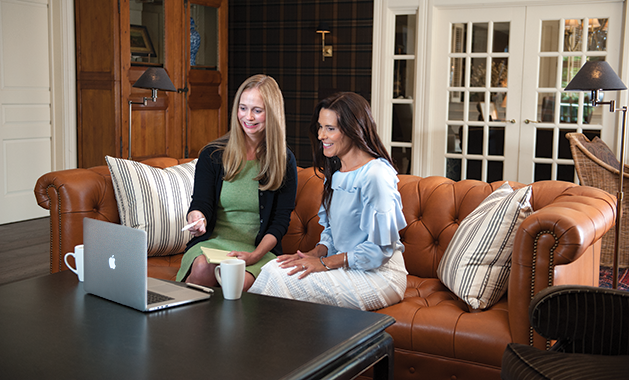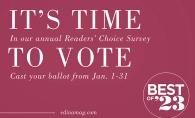Audra Emerson, half of the team behind Edina-based career coaching firm CareerPrep, says she “followed the pack” when starting as an undergraduate at the University of Minnesota. “Psychology was one of my career assessments from high school, and I had friends going into psychology, so I said, ‘OK, that sounds fun,’ ” she recalls.
Then, halfway through school, Emerson learned that she didn’t want to go into psychology. “So I dabbled and played around and dragged my feet,” she says. “I went off on all these tangents.”
Before, baby boomers graduating from college seemed in many cases to just figure it out, as in, "‘No, I didn’t know what I wanted to do; I graduated and I’m not using that major.’ There’s still this assumption everything will sort of work itself out,” Emerson says.
But the cost of college tuition has risen significantly. Student loan debt has ballooned. The stakes are higher. It’s not always economically feasible to go back to school if you don’t like where you end up. And as colleges vie for students by specializing in fields, changing majors can mean changing schools if you want to gain an edge.
After earning her psychology degree, Emerson sat down with a recruiter. “The minute I learned [recruiting] was a profession, I knew this was exactly what I wanted to do,” she says. She wouldn’t have to go back to school. It tapped into her experiences in accounting and sales. “That relationship with one person”—her recruiter—“changed my trajectory,” she says.
Then, after working as a recruiter downtown for almost two decades Emerson met her CareerPrep partner, Sara Wegmann. Wegmann worked in human resources. Aside from their daughters playing basketball together, they had another connection: Wegmann’s father, a sociologist, had written books on job planning. Wegmann worked in the career center at Lawrence University, where she assumed she would one day become an academic. But as with Emerson, one person changed Wegmann’s trajectory.
A friend recommended she interview for a consulting position. She got it and took off into the business world.
Emerson and Wegmann combined their skills in recruiting and human resources almost two years ago to form a career-coaching firm that might have once helped them. CareerPrep focuses on what they consider a much underserved demographic: students and recent grads.
“[Students] have a limited worldview—of what our parents did, or what our friends’ parents did,” Emerson says.
With over 800 occupational fields in the market, “there’s just not a defined path when you get out of school,” Wegmann adds. “Often kids know things like, ‘I’m a good writer,’ but they don’t think, ‘Oh, I could be a copywriter or go into PR.’ ”
During CareerPrep sessions, students explore strengths through personality and subject tests. Emerson delves into research—into marketing, engineering, and publishing—to form tough mock-interview questions for clients who want to practice for an internship or entry-level job.
And of course, networking—to which Wegmann partially attributes landing her first consulting job. She knew colleagues through school government.
“This generation is so used to texting,” she says. “A lot of networking is about having coffee and talking on the phone.” Calling it “relationship building,” CareerPrep works on soft skills, including how to reach out to people who share only slight connections—whose friend might play basketball with your friend—to talk career opportunities.
“Your first job sets you up on such a trajectory,” Wegmann says. “I met my husband at my first job. It paid for business school. I have so many contacts because of that experience. I learned so much. I sort of got lucky.”
But Emerson and Wegmann both learned: Luck can be courted.
Check out CareerPrep events, including a talk on how to interview this month and in the fall, at careerprepsite.com
Audra Emerson, half of the team behind Edina-based career coaching firm CareerPrep, says she “followed the pack” when starting as an undergraduate at the University of Minnesota. “Psychology was one of my career assessments from high school, and I had friends going into psychology, so I said, ‘OK, that sounds fun,’ ” she recalls.
Then, halfway through school, Emerson learned that she didn’t want to go into psychology. “So I dabbled and played around and dragged my feet,” she says. “I went off on all these tangents.”
Before, baby boomers graduating from college seemed in many cases to just figure it out, as in, "‘No, I didn’t know what I wanted to do; I graduated and I’m not using that major.’ There’s still this assumption everything will sort of work itself out,” Emerson says.
But the cost of college tuition has risen significantly. Student loan debt has ballooned. The stakes are higher. It’s not always economically feasible to go back to school if you don’t like where you end up. And as colleges vie for students by specializing in fields, changing majors can mean changing schools if you want to gain an edge.
After earning her psychology degree, Emerson sat down with a recruiter. “The minute I learned [recruiting] was a profession, I knew this was exactly what I wanted to do,” she says. She wouldn’t have to go back to school. It tapped into her experiences in accounting and sales. “That relationship with one person”—her recruiter—“changed my trajectory,” she says.
Then, after working as a recruiter downtown for almost two decades Emerson met her CareerPrep partner, Sara Wegmann. Wegmann worked in human resources. Aside from their daughters playing basketball together, they had another connection: Wegmann’s father, a sociologist, had written books on job planning. Wegmann worked in the career center at Lawrence University, where she assumed she would one day become an academic. But as with Emerson, one person changed Wegmann’s trajectory.
A friend recommended she interview for a consulting position. She got it and took off into the business world.
Emerson and Wegmann combined their skills in recruiting and human resources almost two years ago to form a career-coaching firm that might have once helped them. CareerPrep focuses on what they consider a much underserved demographic: students and recent grads.
“[Students] have a limited worldview—of what our parents did, or what our friends’ parents did,” Emerson says.
With over 800 occupational fields in the market, “there’s just not a defined path when you get out of school,” Wegmann adds. “Often kids know things like, ‘I’m a good writer,’ but they don’t think, ‘Oh, I could be a copywriter or go into PR.’ ”
During CareerPrep sessions, students explore strengths through personality and subject tests. Emerson delves into research—into marketing, engineering, and publishing—to form tough mock-interview questions for clients who want to practice for an internship or entry-level job.
And of course, networking—to which Wegmann partially attributes landing her first consulting job. She knew colleagues through school government.“This generation is so used to texting,” she says. “A lot of networking is about having coffee and talking on the phone.” Calling it “relationship building,” CareerPrep works on soft skills, including how to reach out to people who share only slight connections—whose friend might play basketball with your friend—to talk career opportunities.
“Your first job sets you up on such a trajectory,” Wegmann says. “I met my husband at my first job. It paid for business school. I have so many contacts because of that experience. I learned so much. I sort of got lucky.”But Emerson and Wegmann both learned: Luck can be courted.
Check out CareerPrep events, including a talk on how to interview this month and in the fall.










